Filling a tank of gas only takes a few minutes. Unfortunately, EV charging stations don’t have the same efficiency, but they’re getting there. But, when you visit an EV station, you can expect that your charging time will be within a certain range.
New Federal Standards for Public Charging Stations
In February 2023, the federal government established minimum standards for the growing EV-charging infrastructure. The standards exist so drivers can find a functioning charger that is compatible with current and future EVs. The lengthy rule includes standards regarding:
| • The technical standards for the station • Connector types • Minimum number of charging ports at each station • Power levels • Available payment methods | • Reliability • Network connectivity • Maintenance standards • Protection from price gouging • Delivery of minimum kilowatts • Cybersecurity and data privacy |
An interesting aspect of the rule is charging speed. DC fast-charging stations must deliver up to 150 kW and Level 2 chargers should provide at least 6 kW. Kilowatt delivery determines how quickly an EV charges.
Time at a DC Fast-Charging or Tesla SuperCharger Station
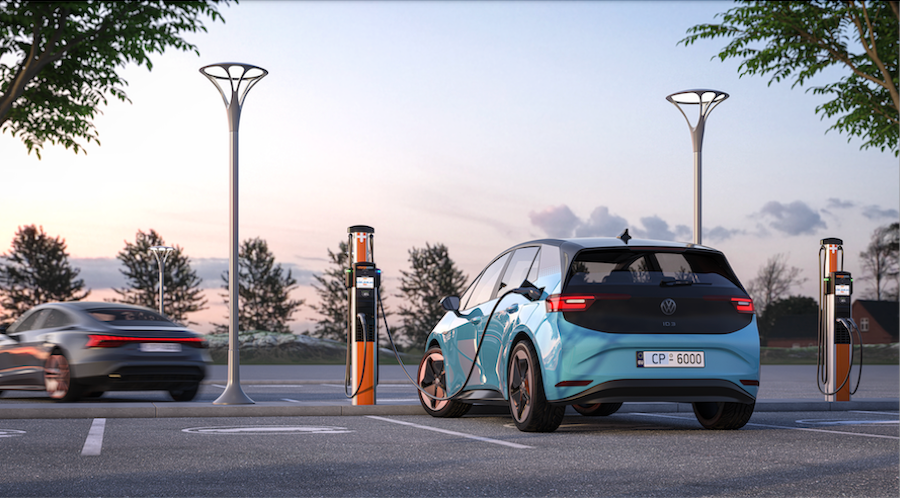
The fastest charging stations are DC Fast-Chargers and Tesla SuperChargers. These speedy chargers typically have a power output of 50 to 350 kW, so they can charge a fully-electric vehicle from 20 percent to 80 percent in about 20 minutes to an hour.
Unfortunately, it’s tough to predict the exact charging speed at a DC Fast-Charger thanks to a variety of factors:
- Your EV’s battery size and maximum charging rate
- The charging station’s power
- The weather
- Your EV’s current battery charge
When the weather is cold, EVs need more time to charge. The Nissan Leaf with a 60 kWh battery will charge faster than a Kia EV6 with a 77.4 kWH battery unless the battery in the Leaf has a slow charging rate or if the EV6 arrives with more juice. In general, the larger the battery, the longer it takes to charge. The emptier the battery, the longer it takes to charge.
Even if you plug into a 350 kW charging port, the port rarely uses 350 kW consistently. Your EV will control the flow, speeding up and slowing down throughout the charging session.
If you don’t like to sit around and wait for your EV to fill up at a public charging station, bring a book, play on your phone, or talk to other EV drivers. Many public DC fast-charging stations are at grocery stores, so you can time your charging around your grocery shopping, or get some steps in while your EV charges. I often take advantage of my Wi-Fi hotspot and get some work done during the time I’m waiting for the battery to fill.
Consistent Charging with Level 2 Chargers
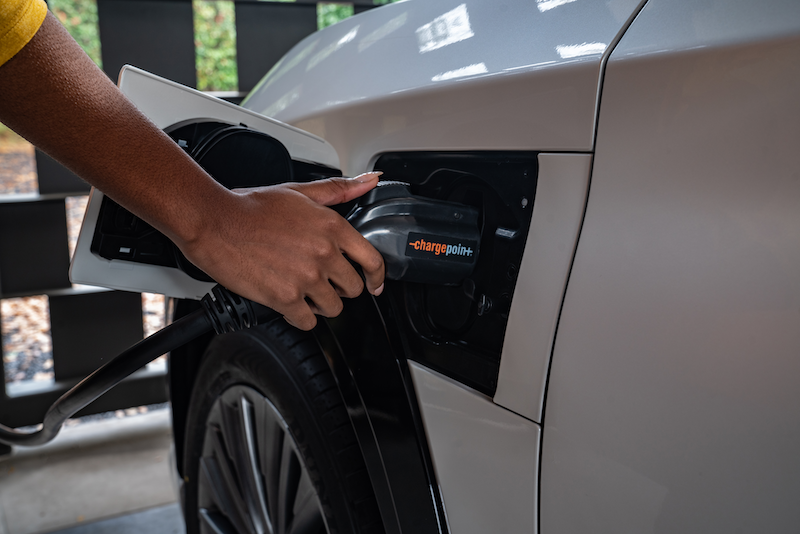
Level 2 chargers are the fastest charging stations EV owners can have installed in their homes. These charging stations will fill fully electric vehicles and plug-in hybrids. They are significantly slower than DC fast-charging stations, so many EV owners plug in their vehicles overnight.
Most plug-in hybrid vehicles like the BMW XM, Hyundai Santa Fe PHEV, or the Jeep Wrangler 4xe take between two and three hours to fully charge. My 40-amp Enel-X-Way JuiceBox charges my Wrangler 4xe’s 17.3-kWh battery in about two hours and ten minutes. With an at-home Level 2 charger, the time is always the same, unless the outside temperatures drop below freezing, then it takes about two hours and 30 minutes. I usually charge it every night, so I can use the electric mode around town.
The slow charging is why drivers with plug-in hybrid EVs do not stop every 30 miles to refill the battery. But, if you’re near a public Level 2 charger and you’ve got an hour to exercise, eat, or shop, it might be worth the time (and money) to refill the battery. When I visit the gym at a nearby university, I take advantage of a free Level 2 ChargePoint station. In about 75 minutes, the Jeep battery fills from 45% to 100%.
Fully-electric vehicles need significantly more time to charge at a Level 2 station. The JuiceBox in my garage charges my EV6’s 77.4-kWh in about 7.5 hours. A few nights ago, I added 57.65 kWh to my EV6 with my Level 2 charger. I plugged the car in at 11:08 PM and the EV6 notified me it was full at 5:27 AM. The free charger at the university adds 5% to the EV6 in 75 minutes.
Whether or Not To Consider a Level 1 Charger
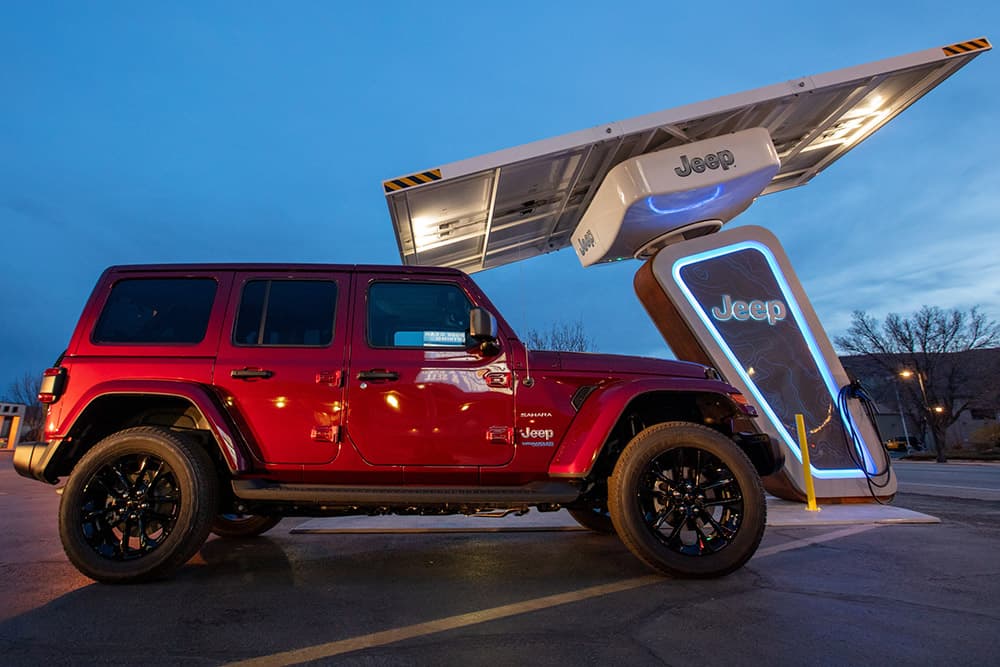
Many EVs come with Level 1 chargers. These are slowest of the slow, even for a plug-in hybrid. A Level 1 charger is a household outlet. You don’t need any special charging stations or electrical work done to use one. You can even add an extension cord for those hard-to-reach household outlets (but be prepared to wait longer for the electricity to travel the length of the longer cord).
I haven’t used a Level 1 charger with my EV6, but I have used it frequently to fill the Wrangler 4xe. If the battery is empty, it takes 12 hours to refill it. While it seems silly to wait this long to charge a battery that provides about 25 miles of range, a Level 1 charger is helpful when you don’t have access to anything faster. We’ve used it while on vacation, plugging in overnight, and my husband uses the Level 1 charger to fill up when he’s got the Jeep at work.
A fully electric vehicle needs several days to fill up with a Level 1 charger. For example, the Volkswagen ID.4 needs 50 hours to charge completely with a Level 1 charger. The level 1 charger adds four miles of range per hour in a Chevy Bolt. If you don’t drive often and most of your miles are around town, a Level 1 charger can suffice. Plug it in at night, and you’ll have more miles of range when you wake.
Some EV drivers keep their Level 1 chargers in their frunk or trunk. Having it in the car reduces range anxiety, simply because you know you’ll always have a charging source. You’ll sit around forever waiting for a percentage or two, but that small amount could get you to the next Level 2 or DC fast charger.
ADVERTISEMENT

FEATURE IMAGE: RANDI BENTIA
FTC: We use income-earning auto affiliate links. Learn more.


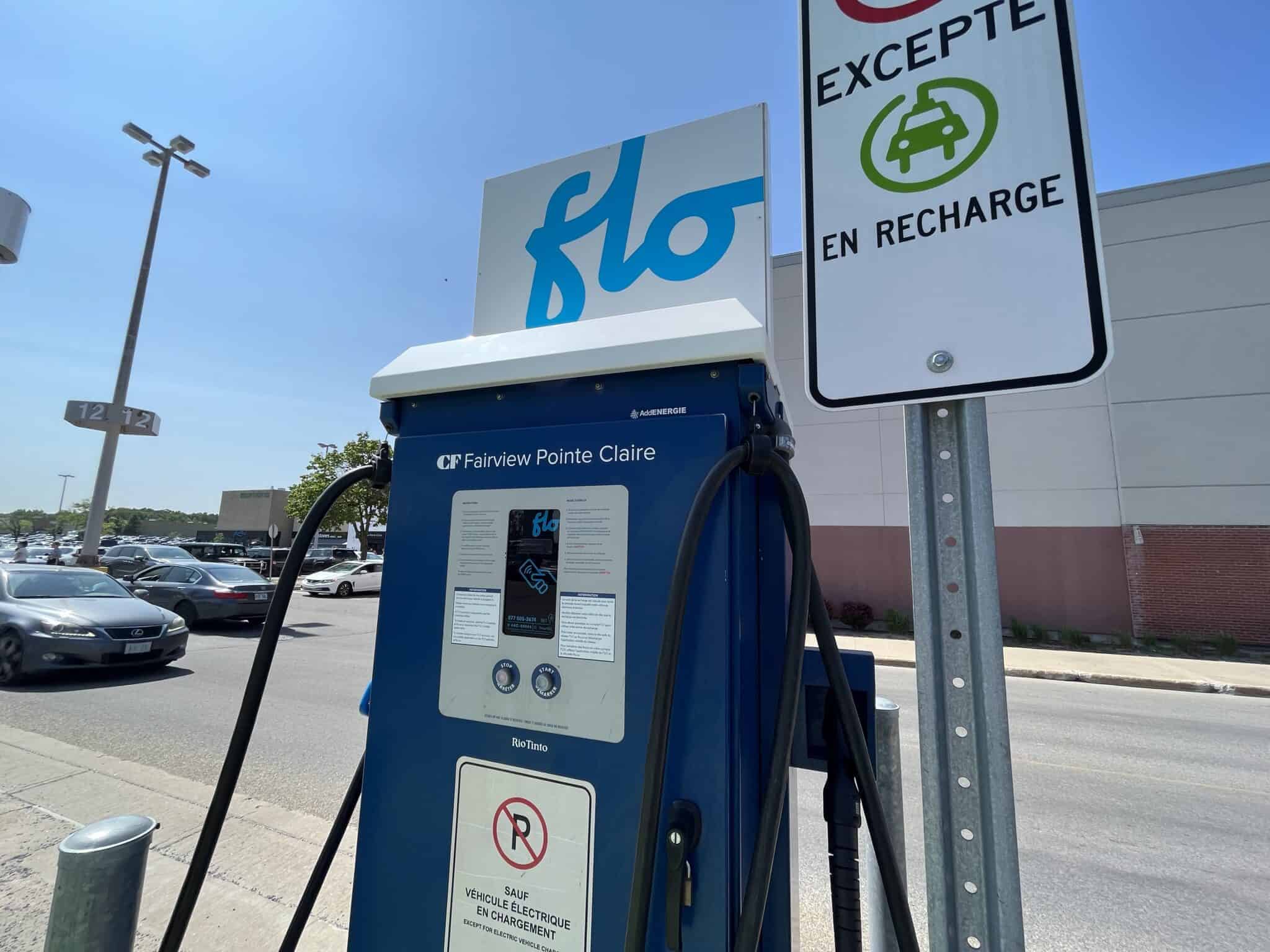



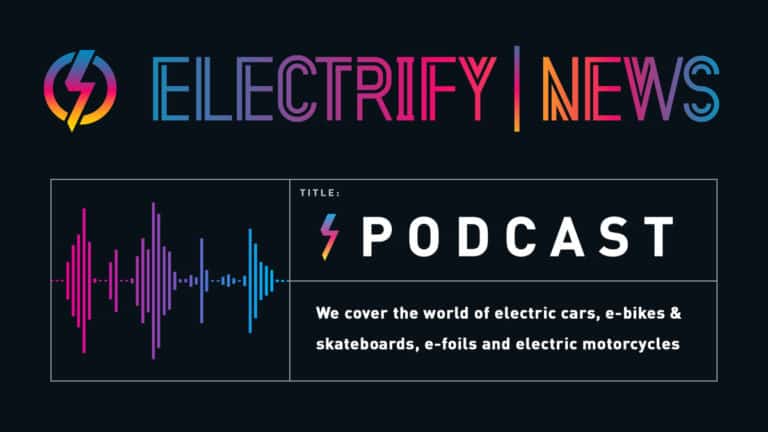
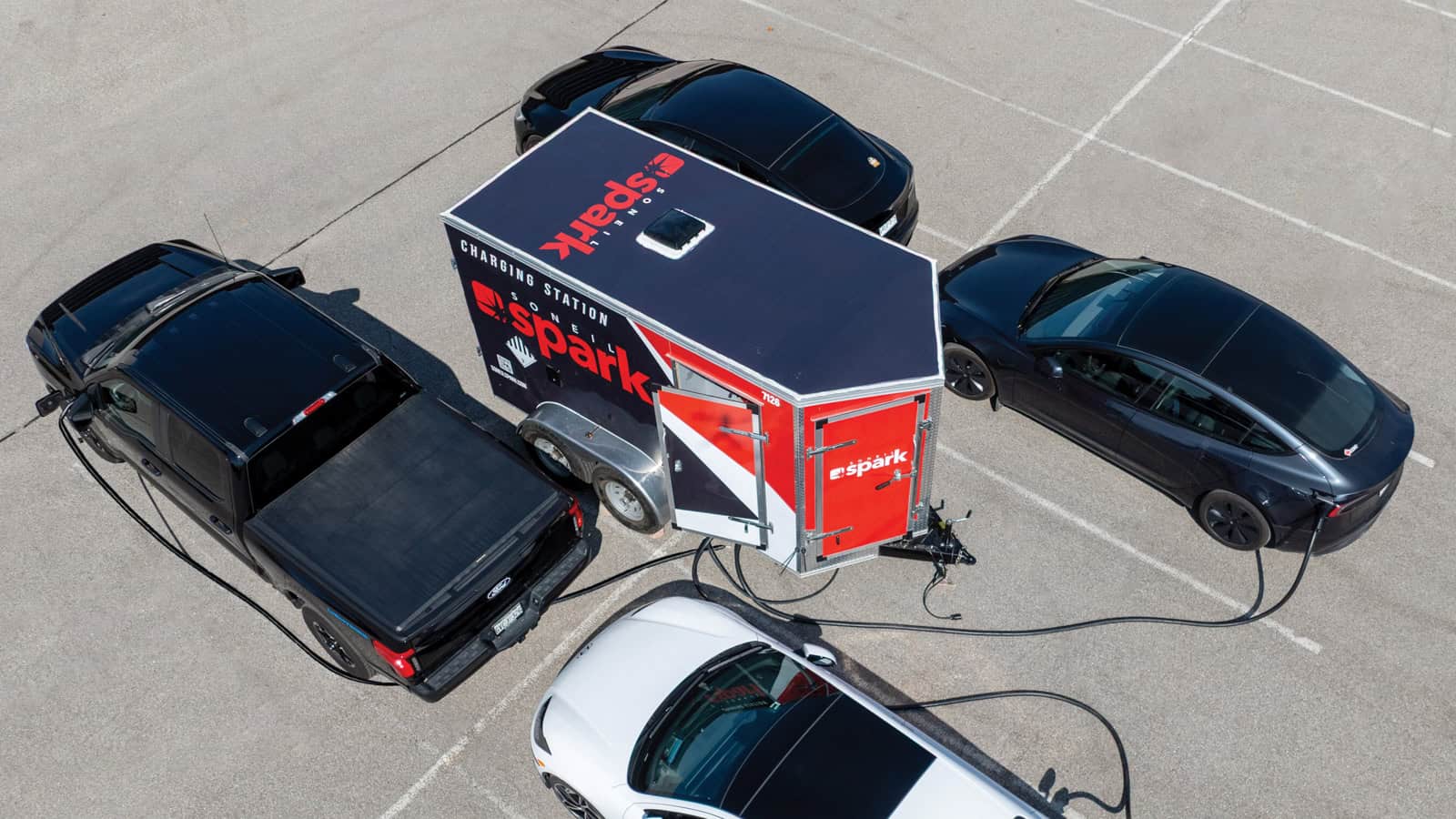

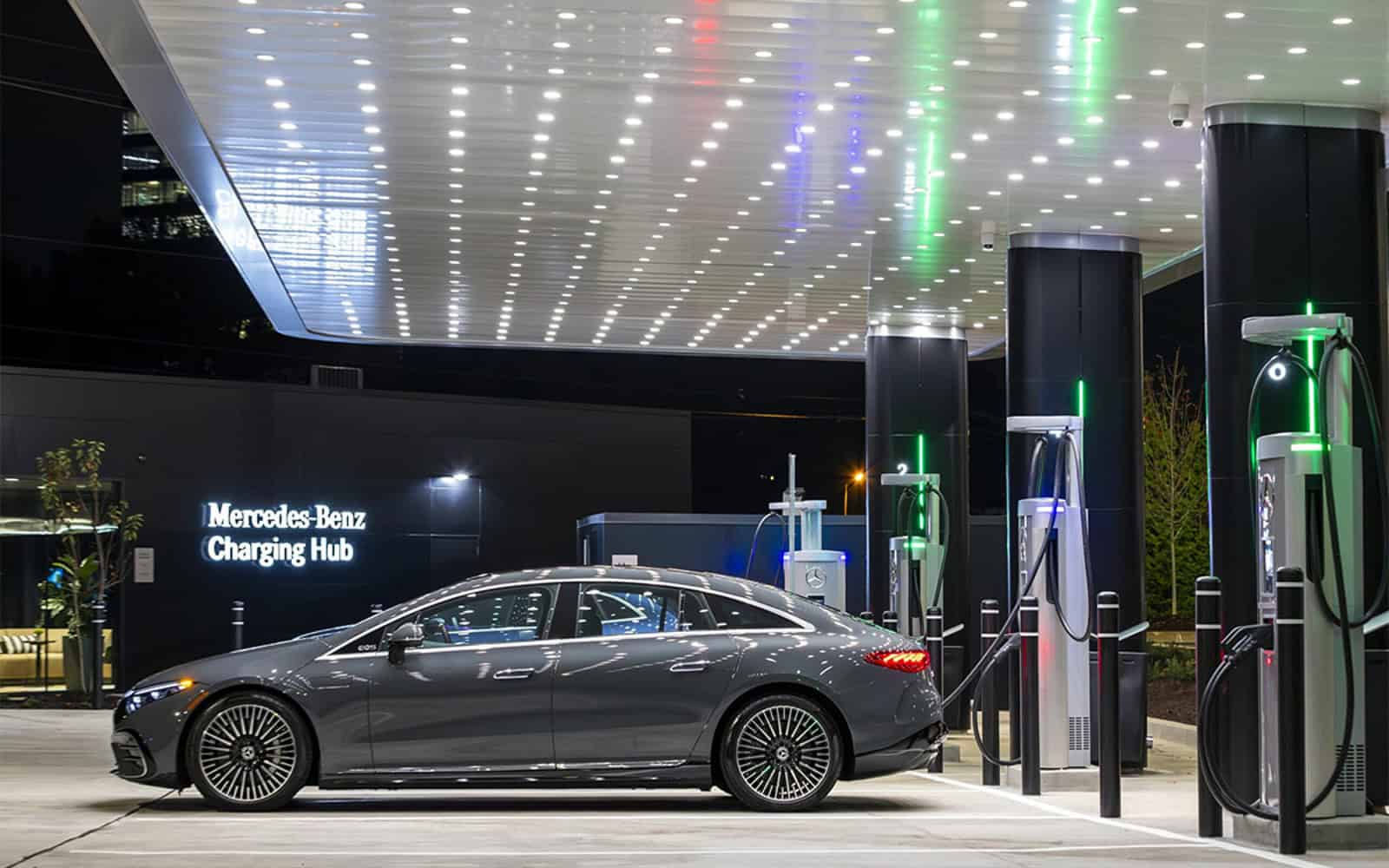
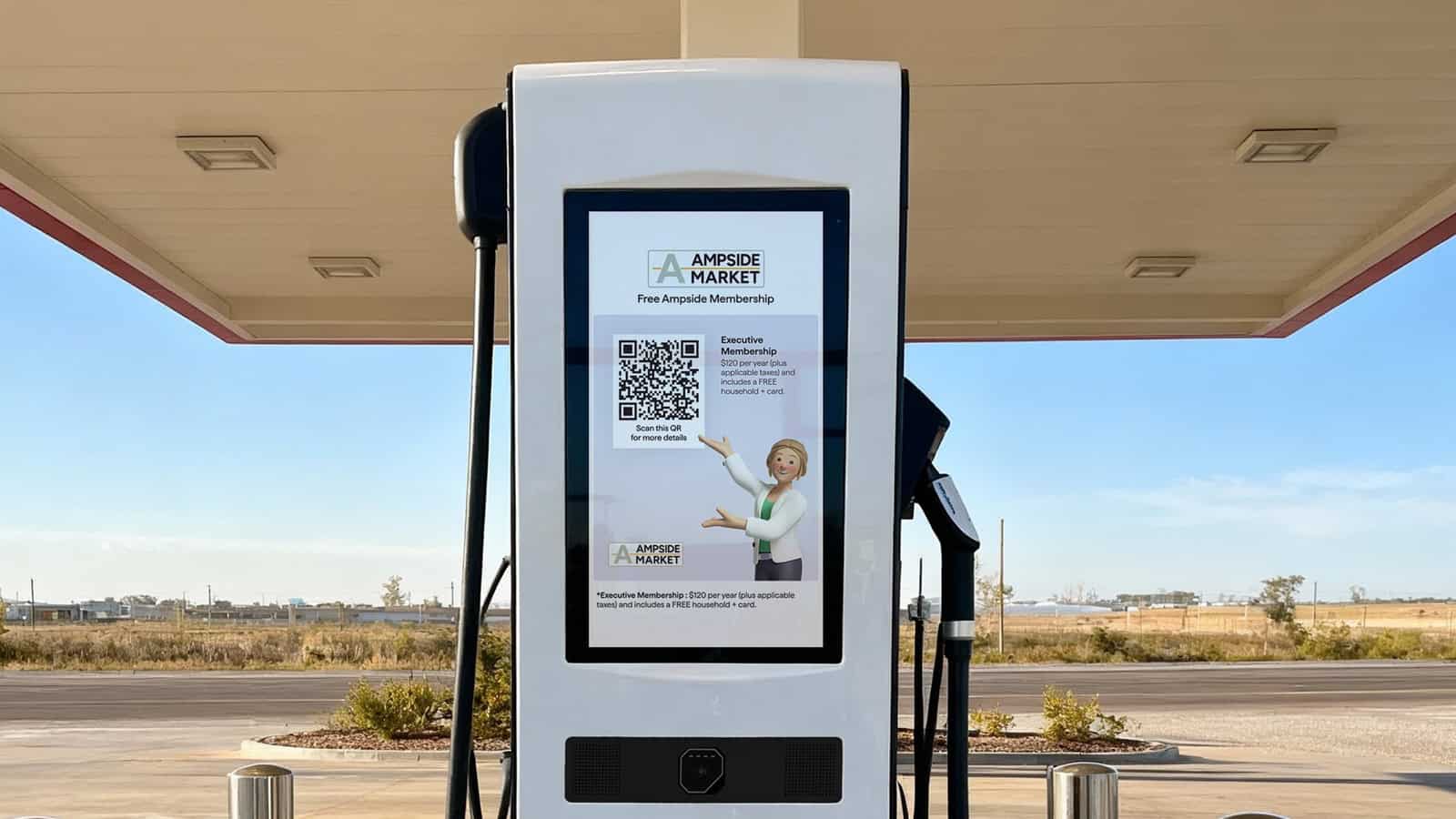
11 Responses
Why would anyone want a car you have to wait 3 hours to charge up. That’s inconvenient on road trips, who has time to wait 3 hours when traveling on vacation or road trips, when you can go to gas station and fill up and go on your way. I will not buy an electric car.
Anyone who loves to waste time AND money will buy an EV!
Sorry, but you don’t understand the issue. A 3 hour charge would be with a Level 2 charger like I have at home. I plug mine in at night, easily fully charged in the morning. On the road I use DC fast charging which usually takes 15-25 minutes. These are usually at Walmarts, Targets, etc. I plug in, go inside to use the restroom, buy snacks, etc. At 71 years old it’s actually nice to stop every 2-3 hours on the road to stretch my legs, use the bathroom, etc. If you need to drive 500 miles per stretch and you’re in a hurry then by all means drive your gas vehicle.
Nobody talks about when you continually fast charge a battery it takes life out of the battery There’s only so many charges in a battery and what’s a battery replacement cost
And at some point we got around in a horse and buggy. I’ve had an ev for 3 years and LOVE IT. Though I understand the reluctance of some. EV technology is constantly improving. I’m waiting for the Ram 1500 EV truck to come out later this year with a 500 mile range, and charging of approx 100 miles in 10 minutes. Yes the public charging infrastructure is not there yet, but improving. We do not need as many public chargers as gas stations because we can charge at home. I ask my friends in gas cars, if they could start every morning with a full tank of gas, how often would they need to stop at a gas station? I bet very seldom, and only on long trips. That’s a benefit of an EV. I start every morning with a 90% battery charge, last time I used a public charger was about 6 months ago. I get about 300 miles on a full charge and find that’s more than adequate for daily drives.
In actual dollars, what does a full charge cost at a charging station, & what does it cost at home, if you plug in to a garage outlet? We are trying to find out what it costs to drive for a month (not a high end car).
And then there are the “entitled owners” who hook up at a shopping centre go shopping and have lunch. They come back in two hours. Disconnect and drive away. The fact that people are waiting means nothing to these people.
You say “(but be prepared to wait longer for the electricity to travel the length of the longer cord)”. This statement casts doubt on your write up and here’s why. Electricity travels along the extension cord at a speed slightly slower than the speed of light. I promise you won’t be able to notice any difference in charge time because of extension cable length, even if your extension cable went around the world. If you don’t know something this basic I’m going to have to attach a bit of skepticism to the rest of your article.
Yeah I’ll stick with my gas!
I bought a used model S , i get 390km on a full charge. Cost to charge at home after 11pm is 0.028 per KWH , i have only owned it for 3 months and saved over $1,000 in gas/diesel cost ( was driving a Q5 diesel , range of over 900km on full. ) but my daily drive is under 150km and there is free charge at work. For distance trips charging in 15-25min or so , over 50yrs old now so , i don’t mind a stop after 3-4hrs of driving. Performance of the S is off the charts. Also most families have model then one car.
No way. Don’t have the time or patience to wait 12 hours for a charge. Gas & go in less than 5 minutes.